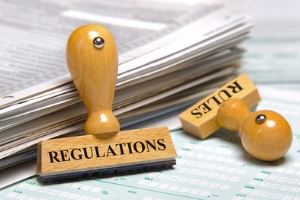When you first move out of your parents’ house, there is a high chance that you rent--not buy--a home or an apartment. This is often because income is limited and there isn’t a down payment available.
Maybe you’re uncertain as to whether or not you’d like to live in your current city or another one. Whatever your reasoning is, you may not realize that it is the landlord’s responsibility to cover major repairs that a home might need.
Not many people realize this or talk about it because major plumbing repairs usually cost major money which tends to cut into the landlord’s profits. We’re going to take a quick look at what problems have to be repaired and how you can get an uncooperative landlord to do so. Keep reading for more information!
What The Landlord Has to Pay For

Basically, the landlord must pay for any repairs that are causing the home to be unlivable.
For the sake of this post, we will talk more about plumbing problems but the issues can range from heating and electrical work as well.
For instance, if you find that you have a burst pipe that is causing water damage or is flooding your home and damaging belongings, the landlord must fix this.
Smaller repairs like a leaky faucet or a clogged drain might not be a ‘must,’ but if a larger problem is found, the repair costs fall back to the actual homeowner--the landlord.
Choosing to Rent or Buy Your Home

You may wonder if purchasing your home is a financially sound move: sometimes it is and others it isn’t, it just depends on each situation.
What you should consider before purchasing a home is whether or not you can afford the mortgage as well as any major repairs that the house might need.
When a home floods due to a burst pipe, there is the cost of the pipe repair, the water restoration, and possible mold remediation.
If you are renting your home, the repair, restoration, and remediation are typically covered by the landlord. Again, this doesn’t include small repairs like leaky faucets, clogged toilets, or small electrical problems like dead outlets--just the big, costly problems. Quite often, there is a stipulation in the lease agreement that the renter covers repairs up to a certain amount and after that the landlord steps in.
Is Your Lease Enforceable?

Some landlords are wonderful and want your renting experience to be a fantastic one. Others don’t care much about their tenants as long as they get paid.
Landlords like these sometimes have unenforceable lease agreements, especially if they refuse to pay for needed repairs.
Some states or counties have a ‘right to deduct’ statute, meaning that after ample notice, you can pay for a repair and deduct it out of your rent for the next month.
This can be a tricky tactic and definitely cause some friction between you and your landlord, so it’s important that you do this with caution and with the best legal advice. The one thing that you absolutely cannot do is withhold rent money because of a needed repair. Although it seems like it would be a fair strategy, this can spell eviction for tenants.
Call For Emergency Repairs Sooner Than Later
If you know, call Shamrock Plumbing & Drain Cleaning, Inc. to avoid the risk of further damage. This is especially important if your landlord is not responding quickly to an emergency call that could damage your property.
Sometimes it’s best to quickly fix the problem and worry about the details of payment after rather than having to replace furniture, pictures, fixtures, and anything else that may be important to you.
Do you have a story about a landlord failing to make repairs? Tell us about what happened and how you handled it in the comments!
